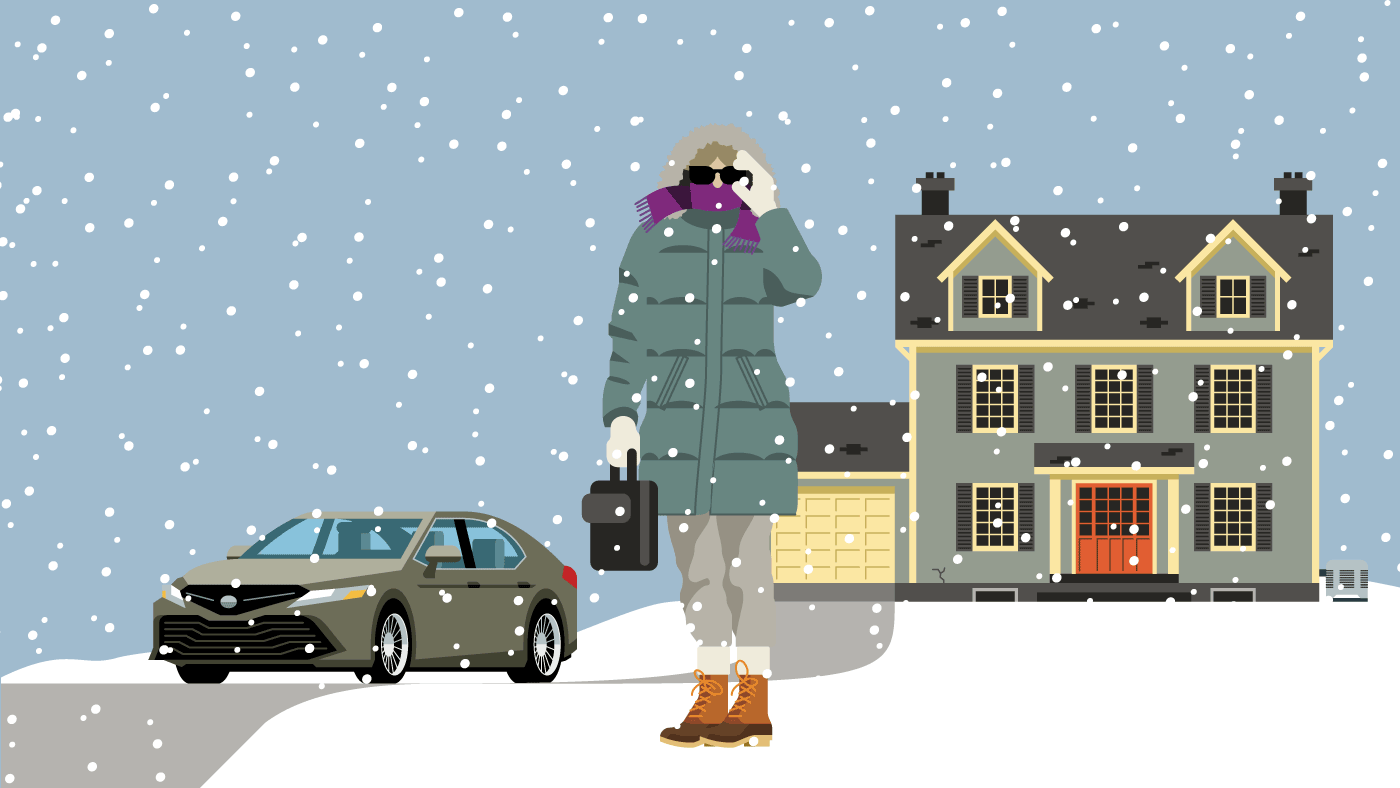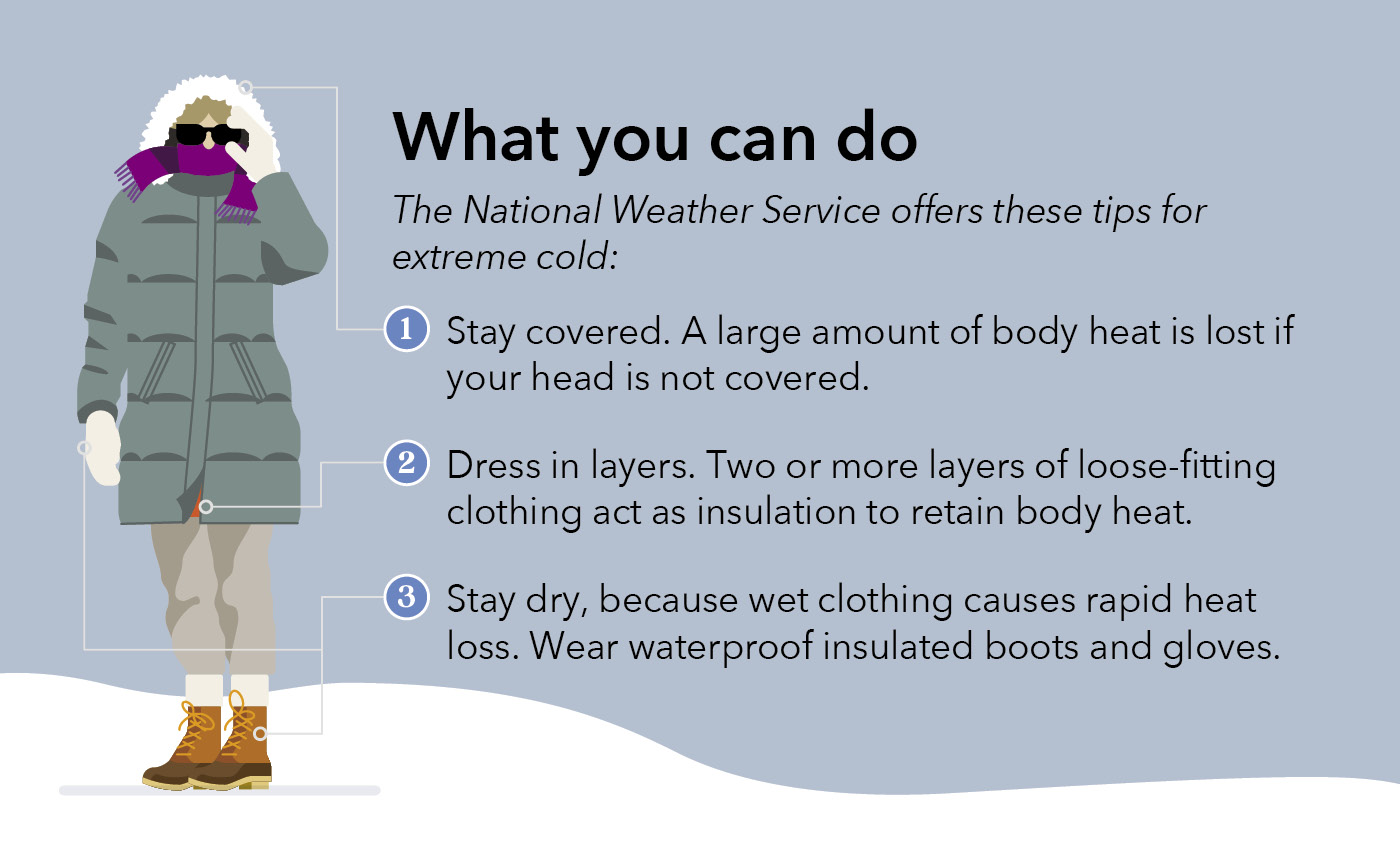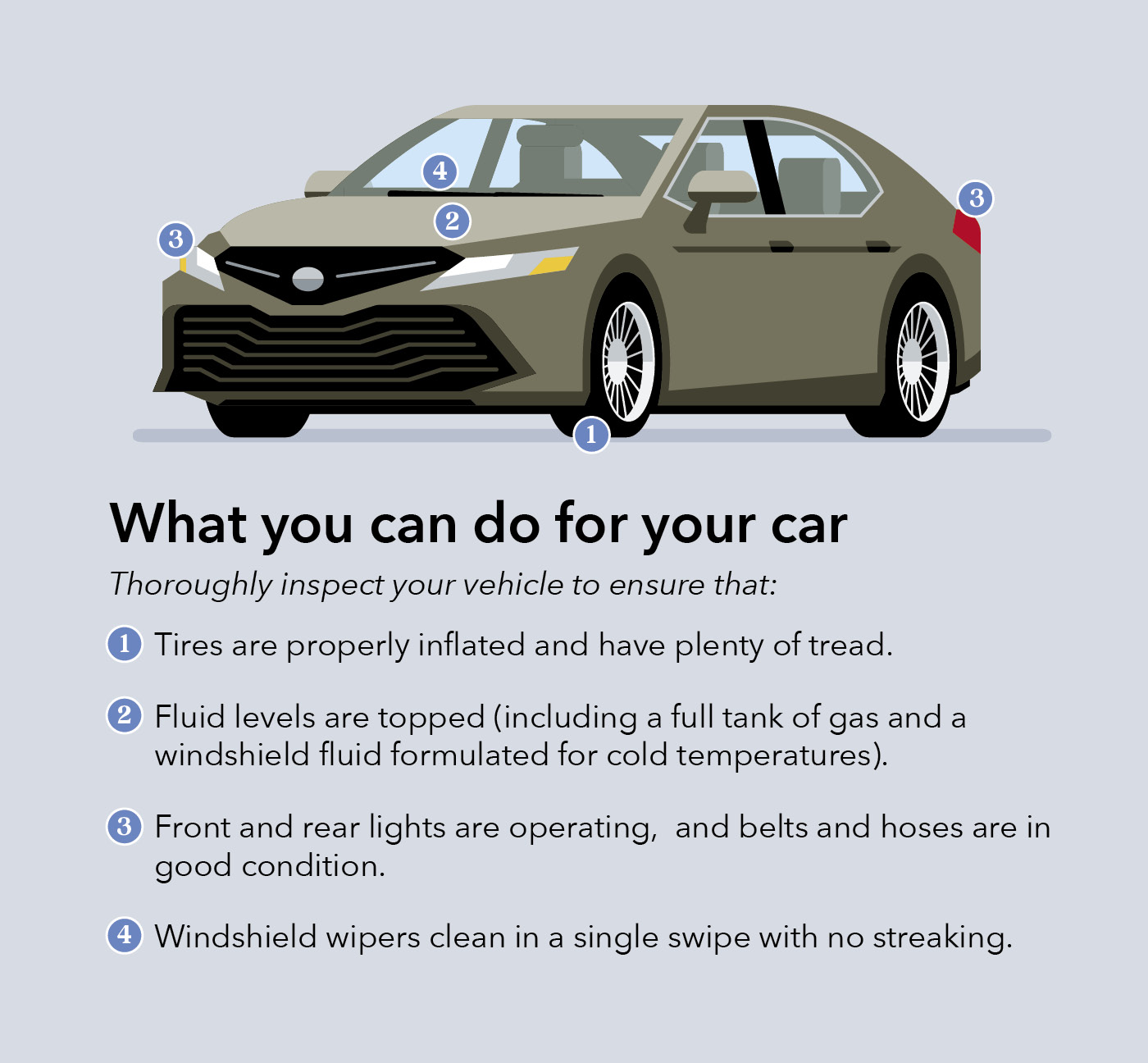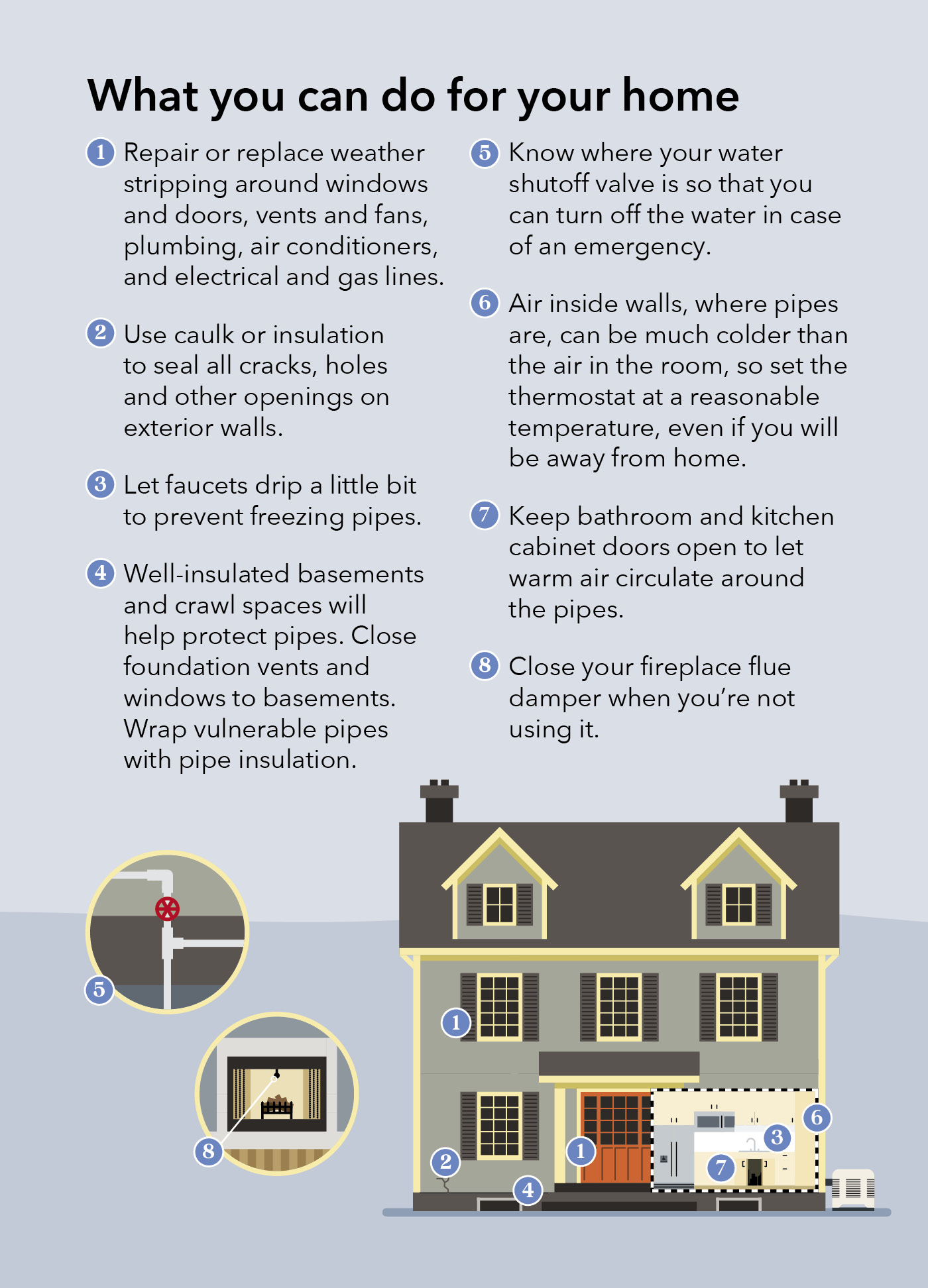Tips for Staying Safe in Extremely Cold Weather
Advice to protect yourself, your car and your home.
 Art by L-Dopa
Art by L-Dopa
Unpredictable weather in recent years is a good reminder to be prepared for the mercury dropping.
For example, in December 2022, an arctic bomb cyclone covered the United States, bringing blustery winds, flash floods, power outages and frigid temperatures across the nation. Conditions like these present a unique set of challenges to anyone living in the area.
These tips can help you during periods of extremely cold weather.
Care for yourself in extreme winter weather.
You may already know how to deal with the inevitabilities of cold weather—heavy snow, frozen pipes, cancelled outdoor activitie —but what about extreme temperatures that threaten your health and safety?
Wind chill: In cold weather, your body boosts heat production to help maintain normal body temperature. But wind draws the warmth from your skin and speeds up heat loss, which creates life-threatening conditions. Example: A 20 mph wind when it’s 5 degrees below zero creates a wind chill of 29 degrees below zero, which makes for dangerously cold days and nights.
Frostbite and hypothermia: Frostbite—the freezing of skin and the tissue beneath it—usually affects extremities like fingers, ears and the tip of the nose first. In extremely cold weather, exposed skin can get frostbite in minutes, and prolonged exposure can lead to life-threatening hypothermia—a dangerous drop in body temperature. If you’re exposed to winter weather conditions, or venture outside for winter activities, bundle up with scarves, mittens and plenty of warm clothes.

How AAA can help you and your family members.
Get storm information: AAA Members can receive free emails about extreme winter weather. Sign up is required.
Rely on travel protection: Planning a major trip? Travel insurance through AAA can provide protection if your trip is canceled by things like extremely cold weather.
Care for your car in the coldest weather.
Extremely cold weather can affect your car, even though it may be working fine in normal weather. Here are some things to watch.
- Battery: A common cause of cold-weather breakdowns is a weak or dead battery. Signs that you may need to replace your battery include a motor that starts sluggishly or if the battery warning light is illuminated.
- Fluids: Low temperatures cause automotive fluids to thicken and restrict flow. Transmission fluid and motor oil can be affected. Antifreeze may be less effective if it’s old or has an improper ratio of coolant to water. Moisture in the fuel tank or lines can freeze.
- Tire pressure: Cold air reduces tire pressure by about 1 or 2 pounds per square inch for every 10 degrees the temperature drops. Underinflated tires can impact steering and traction and cause unsafe tread wear.

What you can do for your safety right now.
- Check the forecast and delay your trip if extremely cold weather is expected. Visit your state’s Department of Transportation webpage for traffic and road conditions.
- Never warm up a vehicle in an enclosed area (like a garage).
- Always have a cellphone with you and a car charger in your vehicle.
- Don’t use cruise control when driving on wet or icy roads.
- Stay with your vehicle if you get stranded. Run it only long enough to keep warm.
How AAA can help any time of year.
Maintenance inspection: Get peace of mind with a free (for members) multipoint vehicle maintenance inspection at any AAA Approved Auto Repair facility. Find a shop near you at AAA.com/AutoRepair.
Roadside assistance: Getting help is easy: A call to 800-AAA HELP (800-222-4357), a text, an online request at AAA.com/RoadsideAssistance, via Alexa or Google Assistant, or a tap of the screen with the free AAA Mobile app is all it takes.
Care for your home before and during winter storms.
Is your home ready for extremely cold weather? Water pipes and heating systems may require special attention.
